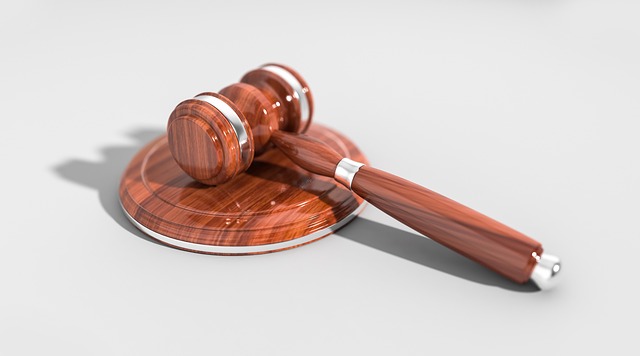Business lawsuits pose significant risks to operations, reputation, and financial health due to their complex nature and potential costs. Common disputes arise from contractual disagreements, fiduciary duty breaches, intellectual property issues, or employment problems. Proactive dispute resolution through expert mediators or arbitrators minimizes these risks by offering cost-effective, efficient solutions while maintaining confidentiality. Engaging neutral experts for an unbiased evaluation in complex business lawsuits speeds up outcomes, reduces costs, and fosters collaboration, ultimately protecting a company's reputation and financial health.
In today’s complex business landscape, understanding the potential risks associated with lawsuits is paramount. This article explores how expert dispute resolution (EDR) serves as a powerful tool for minimizing these risks. We delve into the impact of business lawsuits, highlighting the significance of EDR in mitigation strategies. By engaging experts for neutral evaluations, organizations can benefit from streamlined processes, cost savings, and effective conflict resolution. Discover practical strategies to navigate disputes efficiently, ensuring your business remains resilient against legal challenges.
- Understanding Business Lawsuits and Their Impact
- The Role of Expert Dispute Resolution in Mitigation
- Benefits of Engaging Experts for Neutral Evaluation
- Strategies to Streamline the Process and Save Costs
Understanding Business Lawsuits and Their Impact

Business lawsuits can be complex and costly, significantly impacting an organization’s operations and reputation. These legal disputes often arise from contractual disagreements, breach of fiduciary duty, intellectual property infringement, or employment-related issues. The consequences can be severe, leading to financial losses, damage to brand image, and disruption in business functions. Therefore, understanding the nature and potential impact of a business lawsuit is crucial for any organization aiming to minimize risk through expert dispute resolution.
By proactively addressing legal conflicts and seeking specialized expertise in dispute resolution, businesses can mitigate these adverse effects. Expert mediators or arbitrators play a vital role in guiding parties towards mutually agreeable solutions, ensuring that the process remains cost-effective and efficient while maintaining confidentiality. This approach allows companies to focus on their core activities rather than getting bogged down in lengthy and expensive litigation.
The Role of Expert Dispute Resolution in Mitigation

Expert dispute resolution plays a pivotal role in mitigating risks associated with business lawsuits. By involving neutral, highly qualified experts, organizations can navigate complex legal and factual issues more effectively. These experts provide insights into the strengths and weaknesses of each party’s case, helping to identify potential areas of agreement or compromise. This proactive approach allows for early settlement negotiations, potentially avoiding lengthy and costly litigation.
In a business lawsuit, expert dispute resolution offers a structured framework for resolving disputes efficiently. It encourages open dialogue, fosters understanding among stakeholders, and promotes mutually acceptable solutions. By leveraging the expertise of professionals in their respective fields, businesses can minimize legal expenses, protect their reputation, and preserve valuable relationships. This strategic method is particularly beneficial in high-stakes cases where a well-executed resolution strategy can significantly impact a company’s bottom line and long-term success.
Benefits of Engaging Experts for Neutral Evaluation

Engaging experts for a neutral evaluation is a strategic move that can significantly minimize risks in complex business lawsuits. These professionals bring an unbiased perspective, allowing for a thorough and impartial assessment of the dispute. Their expertise ensures that all aspects of the case are considered, providing a comprehensive understanding of the legal landscape. This objective analysis can prevent costly mistakes and missteps, as well as help identify potential strengths and weaknesses that may be overlooked by parties involved in the heated moments of a lawsuit.
Moreover, experts can offer valuable insights into alternative dispute resolution (ADR) methods. By employing these neutral third-parties, businesses can often reach mutually agreeable outcomes without the lengthy and expensive proceedings of traditional litigation. This not only saves time and reduces legal fees but also fosters a collaborative environment, which is beneficial for maintaining or improving business relationships, even after the resolution of the lawsuit.
Strategies to Streamline the Process and Save Costs

Minimizing costs is a key advantage of expert dispute resolution, particularly in lengthy and complex business lawsuits. By engaging specialists who understand the nuances of both legal systems and the specific industry, companies can navigate conflicts more efficiently. These experts often employ innovative strategies to streamline the process, such as early case assessment and alternative dispute resolution (ADR) methods like mediation or arbitration.
By adopting these approaches, businesses can save significant time and money compared to traditional litigation. Early case assessment helps identify potential weaknesses and strengths in a claim, enabling parties to focus their resources on the most promising avenues. ADR provides a faster, less adversarial route to resolution, often resulting in mutually agreeable outcomes that are more cost-effective than court-ordered judgments.
In today’s complex business landscape, navigating legal disputes can be a daunting task. However, by leveraging expert dispute resolution, companies can significantly minimize risk and streamline processes. Understanding the impact of business lawsuits, engaging neutral experts for evaluation, and implementing cost-saving strategies are essential steps in resolving conflicts efficiently. This approach ensures a more controlled outcome, fosters better relationships, and promotes a culture of collaboration rather than confrontation.
